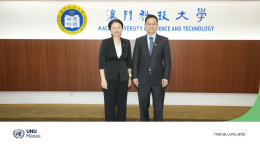This session aims to critically reflect and take stock of major policy achievements and failures in developing cooperative migration policies between European and African countries over the past two decades. Unless unresolved issues are clearly identified and openly discussed, the persistent obstacles in Africa-Europe migration partnerships are unlikely to be overcome, limiting prospects for substantial progress toward more effective and sustainable joint policies.
A significant gap exists between the frequent announcements of new policies and the limited progress achieved in practice. Mismatches in priorities have led to discrepancies in commitment to implementation. For instance, a key priority for many African countries has been the expansion of legal migration pathways to Europe—particularly labor migration channels for lower-skilled workers, whose opportunities remain highly restricted. Despite repeated EU promises and various initiatives, including small-scale pilot programs supporting Africa-EU labor mobility, meaningful opening of such pathways has not materialized. Simultaneously, a central objective for EU member states—to increase the return and readmission rates of irregular migrants in cooperation with African countries of origin and transit—has also seen limited success, with effective return rates remaining between 30 and 40 percent in recent years.
The modest outcomes of Africa-Europe migration cooperation, along with the enduring challenges in meeting its core objectives, can often be traced back to whether specific dimensions or goals are genuinely shared priorities backed by national governments (rather than only regional institutions like the EU and African Union). The successful implementation of agreed measures is contingent upon the political and financial support of national authorities, alignment with domestic development agendas, public and policymaker perceptions of migration, and the actual administrative capacities to implement such policies.
Cooperation initiatives identified as mutual priorities and backed by both African and European political leadership—such as diaspora engagement, anti-trafficking efforts, remittance facilitation, and the promotion of free movement—have generally fared better. In contrast, cooperation areas perceived as priorities by only one side faced significant barriers. EU objectives like return and readmission encountered resistance from African partners, despite considerable financial and diplomatic efforts. Meanwhile, areas such as the expansion of legal migration pathways, which lacked strong political will and resources from the European side, failed to progress despite consistent demands from African stakeholders.


